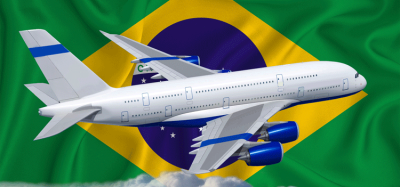Known Traveller Digital Identity brings distributed ledger and seamless travel together
Posted: 30 January 2018 | International Airport Review | No comments yet
The World Economic Forum has said that the Government of Canada is “actively exploring” testing its Known Traveller Digital Identity concept, an innovation that aims to bring Fourth Industrial Revolution tech into the world of seamless travel.


FOURTH INDUSTRIAL REVOLUTION TECH: The concept aims to bring together biometric, distributed ledger, cryptography and mobile interface together to improve secure seamless travel
The World Economic Forum and Accenture have published a report detailing its Known Traveller Digital Identity concept. The system aims to use ‘Forth Industrial Revolution’ technologies like blockchain, cryptography and mobile devices to create more secure seamless travel.
It sets out to reconcile ever-increasing passenger numbers and the limits of infrastructure with demanding security requirements.
In their foreword to the report, which was released last week during the forum’s annual meeting in Davos, John Moavenzadeh, the Head of Mobility Industries and System Initiative with the World Economic Forum, and Liselotte de Maar, Travel Industry Managing Director with Accenture Strategy, said: “This Known Traveller Digital Identity concept is founded on the principle that an individual traveller has control over the use of their own identity and its components.
Join our free webinar: Revolutionising India’s travel experience through the Digi Yatra biometric programme.
Air travel is booming, and airports worldwide need to move passengers faster and more efficiently. Join the Digi Yatra Foundation and IDEMIA to discover how this groundbreaking initiative has already enabled over 60 million seamless domestic journeys using biometric identity management.
Date: 16 Dec | Time: 09:00 GMT
rEGISTER NOW TO SECURE YOUR SPOT
Can’t attend live? No worries – register to receive the recording post-event.
“Due to this decentralisation of control over the components of their identity, a traveller can push proof of their identity information – secured by distributed ledger technology and cryptography – to governmental and private-sector entities throughout their journey.
“Access to verified personal biometric, biographic and historical travel data will enable entities along the way to undertake advanced risk assessment, verify travellers’ identities and provide seamless access through biometric recognition technology. All of this can be achieved without the need to have personal data stored in one central database, which would pose too great a risk for stakeholders responsible for securely handling personal identity information.”
According to the report, The Government of Canada has been actively exploring the testing of the concept with the forum. Its Minister of Transport, Marc Garneau, is quoted as saying: “Innovation is key to enhancing global competitiveness, mobility and productivity.
“Technological advancements provide opportunities to make security for air travel more efficient while improving the traveller experience.”
The report details various methods through which its goal can be achieved, including using a non-blockchain distributed ledger such as R3’s Corda and X-Road. It can be seen in its entirety by clicking here.
The International Airport Summit is open for registration!
Date: 19 – 20 November 2025
Location: JW Marriott Hotel Berlin
At our flagship event of the year, we will dive into the future of airport operations, with expert-led sessions on passenger experience, innovative smart technologies, baggage handling, airside operations, data, security, and sustainability.
This is where global airport leaders come together to share insights, challenges, and real-world solutions.
Limited complimentary passes are available for eligible professionals – first come, first served!
Related topics
Biometrics, Blockchain, Border control, Passenger experience and seamless travel, Security


















